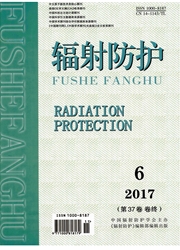

 中文摘要:
中文摘要:
为探讨p53调控的自吞噬在电离辐射诱导的DNA损伤中的作用,采用慢病毒法构建p53敲低及对照细胞系,用血清饥饿诱导自吞噬,3-MA抑制自吞噬,再用γ射线照射细胞。结果发现,p53抑制自吞噬效应蛋白p62/SQSTM1的转录激活,且激活自吞噬可以促进电离辐射之后细胞的存活,说明自吞噬在电离辐射之后的细胞命运决定中起着关键作用。进一步的研究发现,抑制自吞噬可以抑制电离辐射诱导的细胞周期阻滞,从而揭示了DNA损伤诱导G2/M周期阻滞及自吞噬诱导细胞存活之间的联系,为研究基于自吞噬通路的新型辐射增敏及抗辐射药物提供了新思路。
 英文摘要:
英文摘要:
p53 kockdown and control cells were constructed through lentiviral. Inducing and inhibiting autophagy by serum starvation and 3 - MA respectively, and then irradiated cells with ~/-ray. Results proves that p53 represses the expression of the autophogy effector - p62/SQSTM1, which possibly explains the new mechanism of p53 inhibition on autophagy. Meanwhile, the induction of autophagy before and after irradiation is demonstrated to be promoting cell survival, which highlights the importance of autophagy in determining the cell fate after irradiation. Further investigation revealed that autophagy inhibition strongly suppresses DNA damage induced cell cycle GJM arrest which provides new clue to explain the relationship between cell cycle arrest and cell survival.
 同期刊论文项目
同期刊论文项目
 同项目期刊论文
同项目期刊论文
 期刊信息
期刊信息
